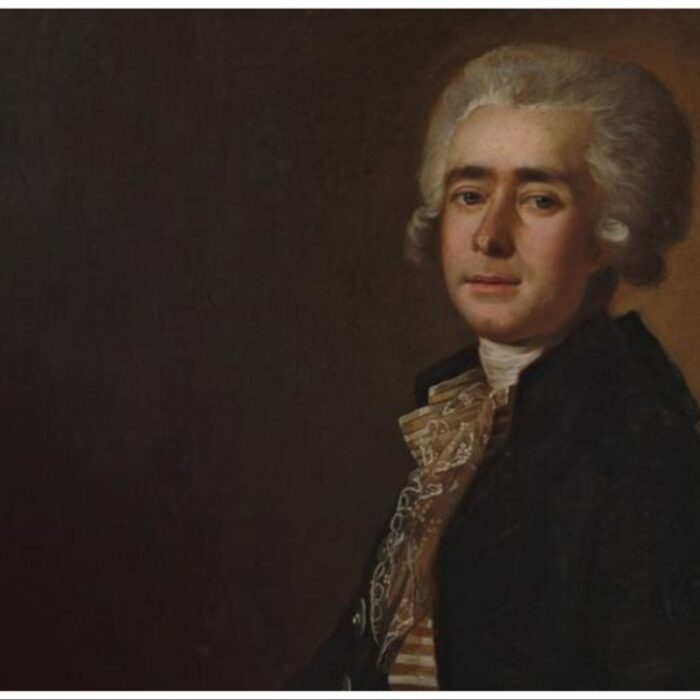
Tension Rises In Lyric Opera of Chicago Labor Dispute With Orchestra
By David SalazarThe labor dispute between the Lyric Opera of Chicago management and the Chicago Lyric Opera Orchestra has continued into Thursday and the Chicago Federation of Musicians, which represents the orchestra, has assembled a rally for Friday, Oct. 12.
OperaWire recently reached out to the two organizations to ask about the next steps in the process to reach a settlement and both sides seemed intent on finding a solution.
“We are evaluating the situation each day and hopeful that [Chicago Federation of Musicians] will resume negotiations,” was a response OperaWire received from the Lyric Opera’s management to inquiries on next steps in the process and whether there might be a deadline to get a deal done.
The Orchestra Committee, speaking to OperaWire in name of the Chicago Lyric Opera Orchestra, also noted that it seemed committed to making things work out, though the main goal is “to preserve this Orchestra and the quality of Lyric Opera performances. We are looking to maintain the same number of musicians in the orchestra, for cost of living increases, and to preserve our benefits and working conditions.”
And despite this desire to find a solution and resume the season, which has currently canceled performances of “La Bohème” and “Idomeneo,” the two sides have been rather vocal in their disapproval with each other’s stance.
The two sides had been negotiating since March 2018 for a total of 26 meetings. Per Kathleen Brauer, one of the representatives for the orchestra members, the Lyric’s management gave its final offer on Friday, Oct. 5, 2018.
The orchestra played opening night “out of respect to patrons” but then decided to go on strike on Tuesday, a move that management stated was an “unnecessary and harmful action.”
The result was the cancelation of two performances of the aforementioned classics, with a potential for more cancelations to come if an agreement is not reached soon.
After going on strike, the Orchestra Committee released a statement in which it questioned the numbers and facts being put out by management.
A day later, management responded with its own statement in direct response to the orchestra’s previous release, refuting the information that was previously revealed.
In this release, management made it clear that it planned to pay the musicians an “average annual take-home wages of $82,500 per orchestra member for 22 weeks of work and 20 hours of work per week.” They also included information on full health benefits and that the company will continue to pay “an expensive defined benefit pension plan for the orchestra.”
Late on Wednesday, the CMF put out its own release in which it took the management’s figures to task. And to add to it, the orchestra released a press statement on Thursday in which it went right after General Manager Anthony Freud.
“The Truth About Anthony Freud Begins To Emerge” is a piece in which the orchestra reinstates many of the figures it had noted in earlier releases, while also emphasizing the shortcomings of the Lyric Opera of Chicago’s leader.
Among the major points of contention for the musicians’ representatives is Freud’s reported $800,000 annual salary; per the Chicago Lyric Opera Orchestra’s statement, Freud saw a pay increase of 18 percent between 2014-2017. OperaWire reached out to management for confirmation of this statistic, particularly the noted pay increase, though there was no reply on the matter.
By contrast, the musicians are stating that the new agreement would only see them obtain pay raises of three percent, one percent, and one percent over the three years.
Furthermore, the Orchestra Committee noted that the management’s statement that they would “take home” an average of $82,500 did not account for taxes, insurance, and other deductions.
“To talk in terms of ’average salary creates a misleading picture,” the Orchestra Committee representatives told OperaWire. “Our contractual base annual salary is $63,096 [in the previous contract]. Including media payments (including radio, which Lyric is taking away), it is $65,912. Including vacation pay, $77,267.93. On occasion, the Opera management chooses to compensate particular players more highly, which can skew an ’average salary’ figure. We are paid weekly, so removing weeks of work reduces our compensation accordingly.”
Per the recent release, the new contract would see a base payment of $71,295, $71,998, and $72,708 over the three years, including $1,000 electronic media payment. The statement also emphasized that the increase per week was less than one percent per year.
It is this very payment structure, in addition to the management’s request that five members of the orchestra be relieved from their position, that has generated the conflict on the part of the orchestra members.
“It is the industry norm to be able to guarantee a base salary regardless of their programming choices, because you simply cannot attract or keep high-level players if you cannot guarantee a minimum salary,” the orchestra’s representatives noted. “No major orchestra uses this ‘per service’ model.”
The Lyric Opera of Chicago’s management confirmed to OperaWire that it was guaranteeing 22 weeks of work for the orchestra, which would by extension mean that members would have a minimum wage.
“Lyric is offering 22 guaranteed weeks of work per year for the three-year contract,” the company stated. The orchestra members, however question whether those 22 weeks will be needed for all players, given that not all operas require the full orchestra. The concern for the orchestra is that there is no guarantee on how many of its members will actually be paid for the full 22 weeks.
Moreover, management did note in its release that it would be paying musicians overtime over 20 hours worked per week. When both sides were questioned about how much overtime was paid out during the previous terms of the contract, neither side commented. Management did note, however, that it had paid out “$1.8 million in wages (not including the cost of benefits) to orchestra members for work weeks that Lyric could not use.” The company is seeking to cut down on these expenses.
Meanwhile, musicians emphasized that their work week consisted of more than 20 hours, as they were expected to come prepared to rehearsals and performances, requiring work outside of the opera house.
In addition to refuting points on salaries and benefits, the two sides have consistently questioned one another over information regarding audience demand, ticket sales, donor support, and other topics related to the company’s overall growth.
Management has repeatedly noted that the company’s growth as a whole is experiencing difficulties and noted that other labor unions (such as AGMA and IATSE) agreed to make concessions in the recent contracts negotiations to help the organization remain stable. It is for this reason that it is justifying its reduction of performances from 86 to 56. It has also noted that additional increases to its budget and money raised as a result have been used to cover operating costs.
The orchestra members, meanwhile, have repeatedly questioned the figures and motives behind the management’s information, noting that the company is selling 84 percent of its tickets, a figure that tops many of the top opera companies in the United States.


